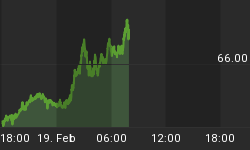In 2018, trade tensions between the world’s two largest economies escalated to unprecedented levels after the U.S. imposed tariffs on $250 billion worth of Chinese goods, equal to about two-thirds of bilateral goods deficit in 2017. Beijing returned fire by imposing levies on $110 billion worth of U.S. goods before the two countries reached a temporary ceasefire on new escalations.
But finally, there are indications that hostilities between the two countries could come to an amicable end. U.S. trade representative, Robert Lighthizer, has said that the U.S. will abandon plans to increase further tariffs on $200 billion of Chinese goods. Lighthizer made the revelation following testimony on Capitol Hill on Wednesday in what could signal that ongoing trade talks by the two nations are going well.
Lighthizer, however, added that the lifting of the proposed tariffs would be incumbent on, among other things, China keeping its end of the deal adding that consultations on potential violations would be frequently held and tariffs could be reimposed if Beijing failed to live up to its pledges.
Fantastic progress
More and more positive signs on the talks are beginning to emerge. On Thursday, the U.S. National Economic Council Director, Larry Kudlow, revealed that the two countries are making ‘‘fantastic progress’’ in their recent meeting:
“Last week was fantastic,” Kudlow told CNBC. ” “We’re making great headway on nontariff barriers and tariffs regarding various commodities such as soybeans and energy and beef. We have mechanisms with regard to enforcement, which is — I think — unparalleled, ” before adding “…we have to hear from the Chinese side. We have to hear from President Xi Jinping, of course. I think we’re headed for a remarkable, historic deal.”
But perhaps more importantly, Kudlow revealed that Beijing had expressed a willingness to make key structural changes to curb intellectual property theft, a key tenet of the talks. Kudlow’s comments follow Lighthizer’s testimony after he told members of the House Ways and Means Committee that China needed to do more than just buy more U.S. goods for the two countries to strike a permanent trade deal. Related: Walmart’s $20 Billion Buyback Spree Sparks Outrage From Senate
And, he is right. Trump has repeatedly said that the most contentious issue in the trade spat is not the huge trade surplus between the two protagonists but rather China’s decades-old practice of forcing American companies to hand over trade secrets so as to gain entry to the Chinese market.
In theory, tariffs should raise prices for U.S. consumers and lower demand for Chinese-made products thus hitting on an already slowing economy. The US imports more products from China than any other country in the world. In 2017, the US imported Chinese goods worth $505 billion while only exporting goods worth $130 billion thus leaving a hefty trade deficit of $375 billion. In other words, China should be the biggest loser in a trade spat between the two.
Interestingly, Chinese exports to the U.S. did actually record a significant uptick after growing 14.4 percent year over year in September and 15.6 percent in October due to what experts attribute to “frontloading” before dipping to just 5.4 percent in November. Still, China’s trade surplus with the US reached record levels in November mainly due to weak demand in China.
A big reason for the curious trend could be down to nationalistic furor. There average Chinese buyer believes that the US is jealous of China’s rapid rise to the top of the economic ladder. So, what better way to hit back than to stop buying US goods?
No winners
Trump has said in the past that tariffs are making the U.S. richer than ever before. But that’s a misrepresentation of facts. The tariffs imposed on Chinese goods come from U.S. consumers. A November 2018 study by Econpol found that Washington’s first round of tariffs increased prices paid by U.S. buyers of Chinese goods by about 4.5 percent while decreasing the prices received by Chinese sellers by 20.5 percent.

(Click to enlarge)
But the real damage could go far deeper.
According to OECD estimates, an escalation of trade tensions could shave off nearly 25 percent of global growth by 2021with the European Commission’s latest forecast for the region providing a nice blueprint.
This is basically a war with no real winners so even a stalemate is better than the status quo.
By Alex Kimani for Safehaven.com

















